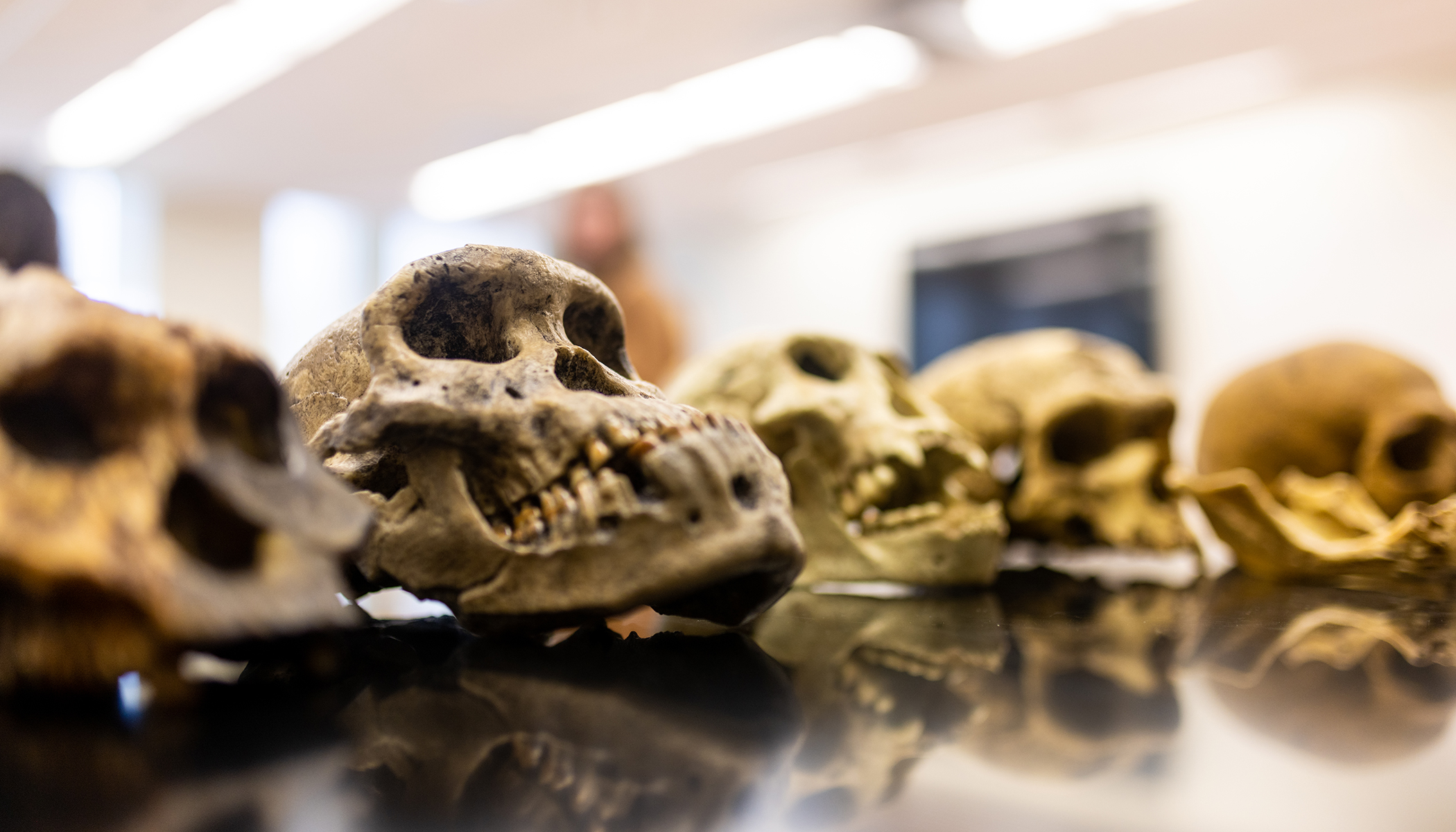At some schools you may spend 4 years reading about anthropology. At Radford, we have engaging course work filled with hands-on experiences.
You won’t just learn from textbooks, in your classes you'll learn by doing real anthropology.
Anthropology is the scientific study of humans and humanity. Because the field is about what makes all humans the same - and what makes us diverse, the classes are centered around experiences that will teach. Students will enjoy opportunities for hands-on learning in small class settings including anthropology labs, active archaeological digs, and study abroad trips.
At Radford, students can take classes in all four of the classical fields: Physical Anthropology, Archeology, Cultural Anthropology, and Linguistic Anthropology. In addition to the regular coursework, students have the opportunity to do individual studies to work in small groups or one-on-one with a professor on a topic of their choosing for credit.
The faculty of Anthropological Sciences place a high priority on providing students with direct, hands-on experience in the field and lab, including involvement in ongoing faculty research projects. These include archaeological investigations in historic and prehistoric Virginia. Internationally, the faculty also have active archaeological, bioarchaeological, and forensic investigations in Bolivia and the Solomon Islands. Students may also work with a faculty member to develop a research topic that they are interested in pursuing.
A famous anthropologist once wrote that “Anthropology is the most humanistic of the sciences and the most scientific of the humanities”, this is because anthropology is the scientific study of people. We look at every aspect of people from their bones to their behavior in all points in time and in all places.
Why does anthropology matter? We live in an increasingly global and intercultural world, with connections to people of different cultures. Anthropology gives understanding of the differences in human experiences and norms while acknowledging the fundamental things that make us all human.
This is an excellent program for those who are interested in working overseas or traveling, but it has become increasingly helpful in the local job market as well. Now anthropologists are considered high level consumer researchers in the field of marketing and hold diversity posts in a variety of institutions. These are options in addition to academic research, forensic anthropology, archeology, museum work, and as cultural attachés.
The program at Radford includes:
Don't just read about anthropology - at Radford you practice it.
At some schools you may spend 4 years reading about anthropology. At Radford, we have engaging course work filled with hands-on experiences.
You won’t just learn from textbooks, in your classes you'll learn by doing real anthropology.

"I love the (archaeology) field and lab methods class because it's hands-on practice for skills I'll use in the future."